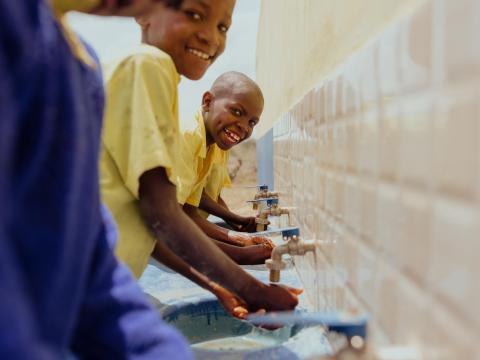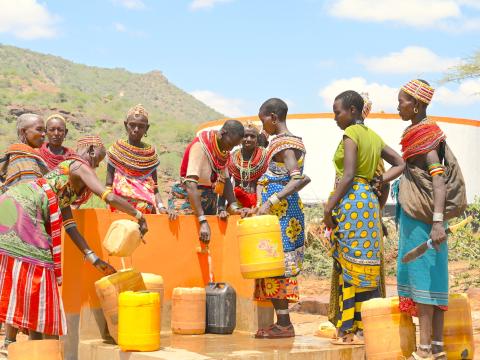Breaking Down Barriers to Achieve Universal Access to Sanitation in Kenya
Download
Embracing "Accelerating Change" on World Toilet Day
Sanitation, often a topic veiled in discomfort, stands as a critical global concern affecting millions. Despite the prevailing taboo, addressing sanitation is imperative for a healthier, more equitable world. According to the 2022 Joint Monitoring Program Report, a staggering 419 million people worldwide lacked access to toilets, practicing open defecation. In Kenya, the 2019 census revealed that 7.4% of households lacked proper sanitation facilities, leading to approximately 10% of the population engaging in open defecation. This alarming situation calls for collective action to propel change.
Current Sanitation Landscape in Kenya: Breaking Down Barriers to Achieve Universal Access
In Kenya, the 2019 census identified 15 counties grappling with high rates of open defecation, emphasising the urgent need for comprehensive sanitation solutions. Despite constitutional recognition of sanitation as a human right, achieving universal access remains a considerable challenge. The repercussions are substantial, with the Kenya Environmental Sanitation and Hygiene Policy estimating an annual GDP loss of 1-2% due to poor sanitation-related issues.
World Vision Kenya's Commitment: Empowering Communities for Sustainable Change
This year's World Toilet Day theme, "Accelerating Change," echoes the proverbial hummingbird philosophy – urging everyone to contribute their part towards improving sanitation globally. World Vision Kenya reaffirms its dedication to transforming lives. In the current strategy period (2021-2025), world vision aims to enhance the well-being of 8,827,654 children in Kenya and among them,1,008,362 people with improved sanitation and hygiene facilities. The Water, Sanitation, and Hygiene (WASH) sector play a pivotal role, focusing on reducing WASH-related diseases among targeted children through sustainable and collaborative interventions.
Mitigating the Impact on Children: Focusing on Health and Well-being
Poor sanitation documented impact on children, including diarrheal diseases and environmental enteropathy, underscores the urgency of interventions. World Vision Kenya employs community-led total sanitation (CLTS) and Nurturing Care Groups (NCG) methodologies, ensuring marginalised groups like vulnerable children, people with disabilities, and the elderly gain access to safely managed sanitation.
Innovative Solutions: WASH Business Centres - Catalysing Change
To expedite progress, World Vision Kenya has introduced innovative initiatives such as the WASH Business Center model. Linked with private sector partners, this one-stop-shop concept provides communities with access to water, sanitation, and hygiene products and services, including technical expertise for latrine construction and even credit facilities through Vision Fund, World Vision's microfinance service provider.The model is already making waves in Bartabwa, Baringo County, and Kalawa, Makueni County, with plans to scale up in Mwatate, Taita Taveta County, and Bandaptai, Bomet County.
 Celebrating Successes and Overcoming Challenges: A Glimpse into World Vision Kenya's Impact
Celebrating Successes and Overcoming Challenges: A Glimpse into World Vision Kenya's Impact
Since the initiation of the current phase of the strategy in 2021, World Vision Kenya has facilitated sanitation access for 359,578 individuals, partnered with the Ministry of Health to declare 1,051 villages open defecation-free, and ensured 39,167 children have access to sanitation facilities in schools. However, challenges persist, including economic hardships facing households, funding limitations, and pervasive myths hindering progress in certain regions.

Looking Ahead: World Vision Kenya's Ongoing Commitment
In the face of challenges, World Vision Kenya remains resolute in its commitment to transforming Kenya's sanitation landscape. The organisation aims to be a key player, actively contributing to the realisation of universal sanitation access for all Kenyans. Together, with other partners, World Vision Kenya is accelerating change and ensuring a brighter, healthier future for communities across Kenya.
References:
- Joint Monitoring Report (WHO and UNICEF) - Progress on household drinking water, sanitation, and hygiene 2000-2022
- State of Rural Sanitation and Hygiene in Kenya - UNICEF and MOH, 2021

